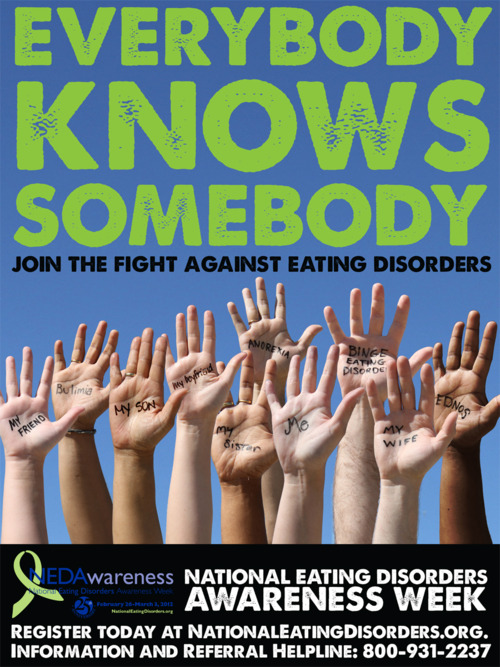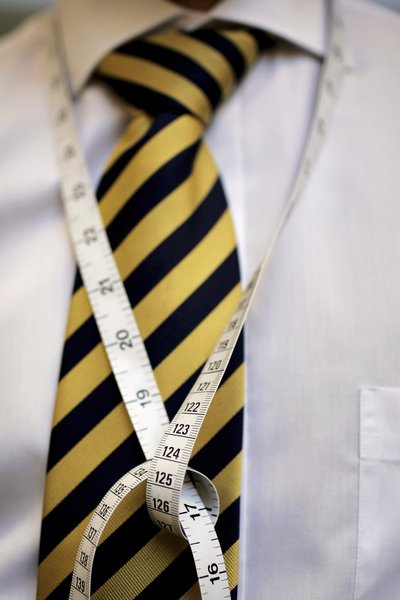Reframing the notion of ‘thin privilege’
By Leah Pickett

Reframing the notion of ‘thin privilege’
By Leah Pickett
Unfortunately, the societal construction of “thin privilege,” which favors svelte individuals in every aspect of life from dating to healthcare to gainful employment, is an issue that looms just as ominously in this country as the “obesity epidemic.” In fact, the first problem directly informs (and often perpetuates) the latter. Frightened parents put their children on micro-managed diet and exercise plans to ward off weight gain; and in turn, the children grow up thinking that their self-worth is dependant upon how well they can control their physical appearance.
What most people tend to forget when glamorizing or condemning the notion of “thin privilege” is that eating disorders come in all shapes and sizes (also different genders, ages, races, social classes, sexual orientations, etc.) and that equating thinness with inherent privilege can lead to serious illnesses across the entire spectrum of body weight. If people keep believing that the key to getting everything they want in life is to lose weight and look like the distorted images that they see in magazines, then they will never be satisfied.
And while a thin person might be considered more attractive or hire-able based on some bogus societal standard of beauty, such “privilege” may mean nothing at all if they’re not also experiencing a truly healthy and happy life. For all you know, they could be desperately miserable and killing themselves in order to acheive an illusion of perfection that never truly existed in the first place.
Causes and symptoms may vary, but eating disordered individuals usually have one very important aspect in common: an underlying sense of unworthiness. For whatever reason, they hurt themselves on the outside to control or mask the agony that they are feeling on the inside—because they don’t believe that they deserve any better.
Insensitive mocking and judgment of eating disorders is another problem: the cruel jokes on television, the “rich white girl” assumptions, the over-arching belief that these people need to “just eat!” and get over themselves. Maybe the classmate that you tease for not eating was raped repeatedly as a child, and starves herself as further punishment for what she still believes was her fault. Or perhaps the co-worker you make fun of for being overweight goes home to an abusive husband every night, and uses food to numb the pain.

American culture fetishizes impossibly slender physiques, praising weight loss as one of the highest goals one can acheive in life and blasting fat people as lazy, self-indulgent slobs. Popular shows like America’s Next Top Model glorify a body type that only 5 percent of the population could ever obtain, while promos for The Biggest Loser and diet companies like Weight Watchers remind us over and over again that we will never be happy unless we are thin.
So how do we go about dispelling these myths and inspiring people to love their bodies no matter what they look like? First of all, fat-shaming is one of the last prejudices to still be considered socially acceptable, meaning that we should abolish it immediately. Second, educating oneself about eating disorders not only helps to lessen the stigma surrounding these illnesses, but also promotes awareness, understanding and incentive for powerful social change.
To learn more about how you can join the fight against eating disorders, or maybe even help redefine what it means to be healthy and beautiful for future generations, visit one of the following websites for more information:
The National Eating Disorders Association (NEDA), the official sponsors of National Eating Disorder Awareness Week; The National Association of Anorexia Nervosa and Associated Disorders (ANAD); The Eating Disorders Coalition for Research, Policy and Action (EDC); The National Institute of Mental Health (NIMH); and leading residential treatment center Timberline Knolls.
P.S. My friend Matt Ryd is doing a fundraiser for eating disorder charities. Check out his latest blog post to learn more about how you can help: mattryd.tumblr.com.
Follow Leah on Twitter @leahkpickett or add her on Facebook.

